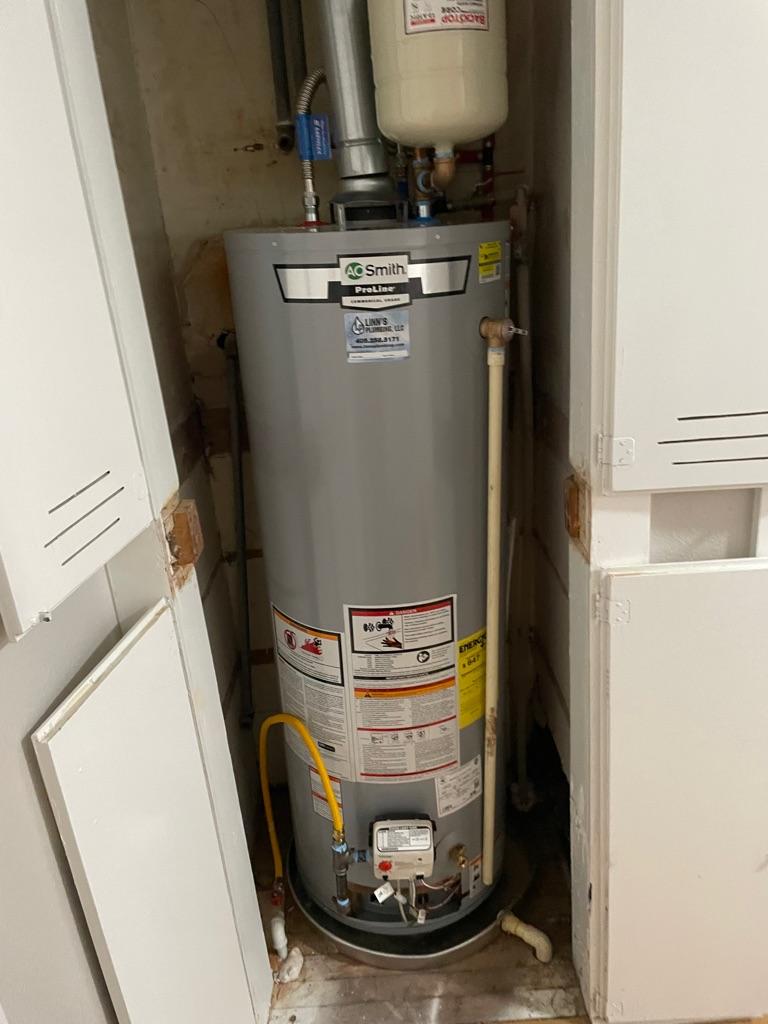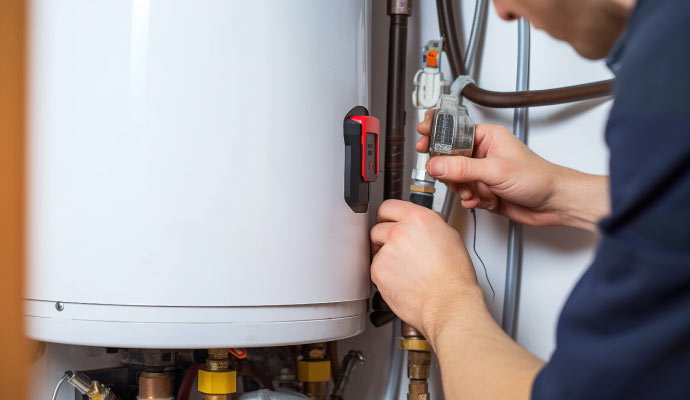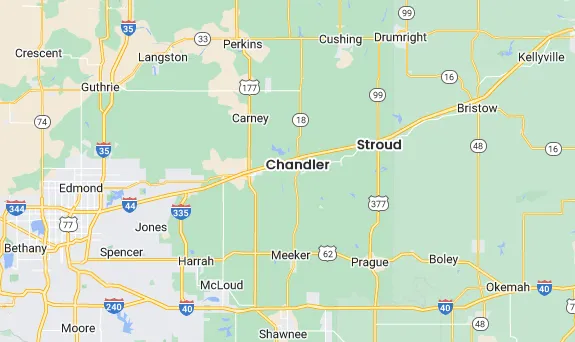How To Choose A Hot Water Heater in Oklahoma
Heating water is the second-largest source of energy use in the home. While we all enjoy a soothing hot shower, the rising energy costs—along with their adverse environmental impact—make it a good time to take a closer look at the many options now available.
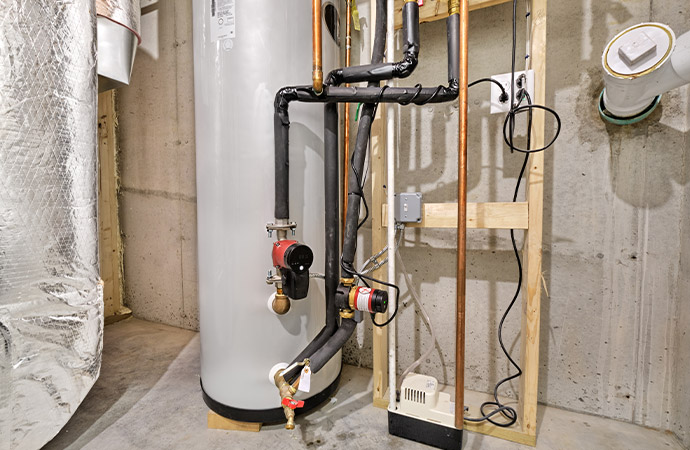
Types Of Hot Water Heaters
Storage: The most common hot water system used in homes. Water is kept constantly heated in the storage tank by electricity, natural gas, oil, or propane. Hot water is drawn out of the top of the tank when a faucet is turned on and cold water flows in the bottom to replace it.
Tankless: Also known as on demand water heaters. Water is heated by electricity or gas when the water flows through it without the need for a tank.
Solar: Water is circulated from the tank through a solar collector where it is heated by the sun. If the water in the tank is not hot enough, a conventional water heater is used to bring it up to the desired temperature.
Factors In Choosing A Hot Water Heater
To choose a hot water heater, there are several factors to consider, including price of the system and installation, cost and availability of the required energy sources, and the energy factor (EF) rating of the water heater.
EF ratings were established by the U.S. Department of Energy to compare the energy efficiency of various products. The EF scale for water heaters runs from a low of 0.5 for gas storage tank heaters to 2.0 for electric heat pump models. The higher the EF, the more efficient the water heater. The EF number takes into account:
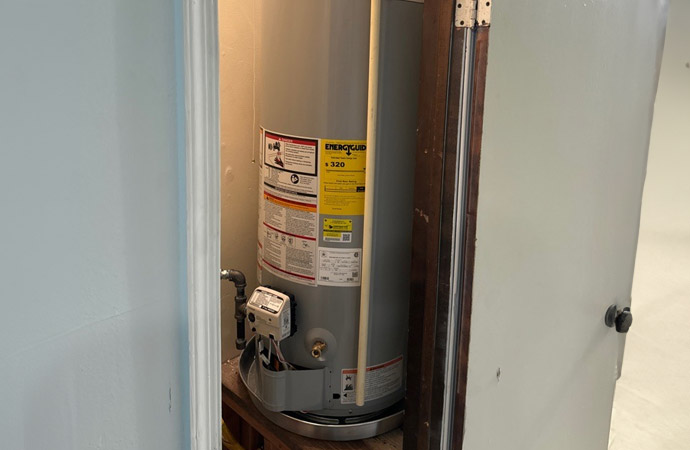
- Recovery Efficiency: How efficiently the heat is applied to the water.
- Standby Loss: The percentage of heat loss per hour of the stored water.
- Cycling Loss: The loss of heat as the water circulates through the unit.
On average in the U.S. in 2006, it costs 1/3 more to heat water with electricity than natural gas. Propane was the most expensive of all at 50% more than gas.
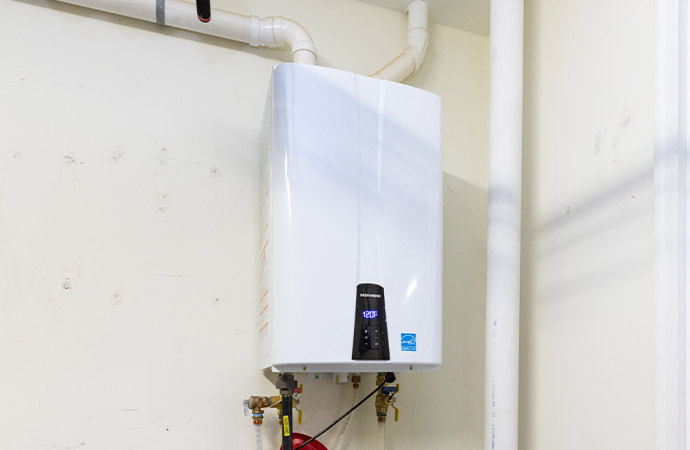
Tankless Hot Water Heaters
These water heaters are considered more energy efficient than storage tanks, but cost more upfront to buy and install. Gasless, tankless water heaters often require a larger gas line and modifications to the vent pipe while the large, tankless electric models may draw more current than the house is designed to handle.
Small single use electric units are less expensive and can be mounted under a sink. They come in handy if you have a half bath or kitchen sink located away from the main hot water heater. Be sure to check the recommended flow rate on tankless water heaters to see if it’s enough to meet your needs. While they won’t run out of hot water like traditional storage tanks, multiple users can exceed the flow rate and cause the water temperature to drop.
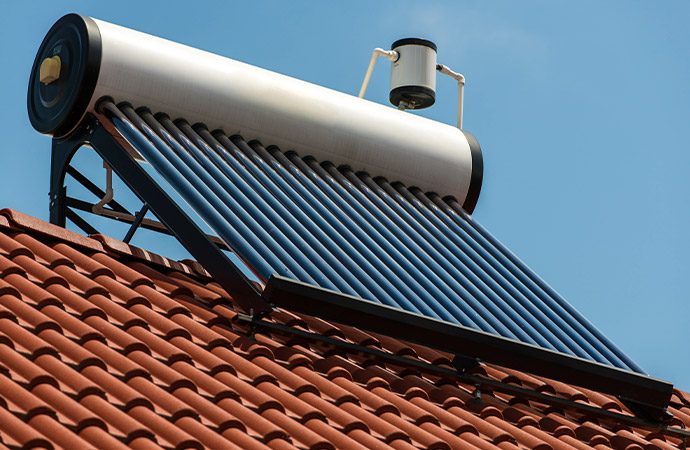
Solar Hot Water Heaters
The collector on a solar water heater needs to be located where it will receive full sunlight throughout the day. For maximum efficiency it should face south and be tilted at an angle equal to the latitude. Solar water heaters will work at a lower slant or when facing southeast or southwest, though not as effectively.
Solar hot water heaters use either natural circulation or a pump to move water between the collector and storage tank. Some systems circulate the water from the storage tank through the collector while others use a heat exchanger in the tank to keep the fluid in the collector separate from the water in the tank.
On average in the U.S. in 2006, it costs 1/3 more to heat water with electricity than natural gas. Propane was the most expensive of all at 50% more than gas.
How Water Heater Energy Efficiency Payback
To find out how long it would take an energy efficient system to earn back its added expense, divide the additional cost of the energy efficient system by the yearly savings in energy. The answer is the number of years it would take the energy efficient system to pay for itself.
We are proud to provide products by prestigious companies such as the following: Rheem, AO Smith and Bradford White.
On average in the U.S. in 2006, it costs 1/3 more to heat water with electricity than natural gas. Propane was the most expensive of all at 50% more than gas.
Our service area includes Chandler, Stroud, Prague, Meeker, Shawnee, Cushing and surrounding areas., don’t hesitate to call or visit our contact page.

